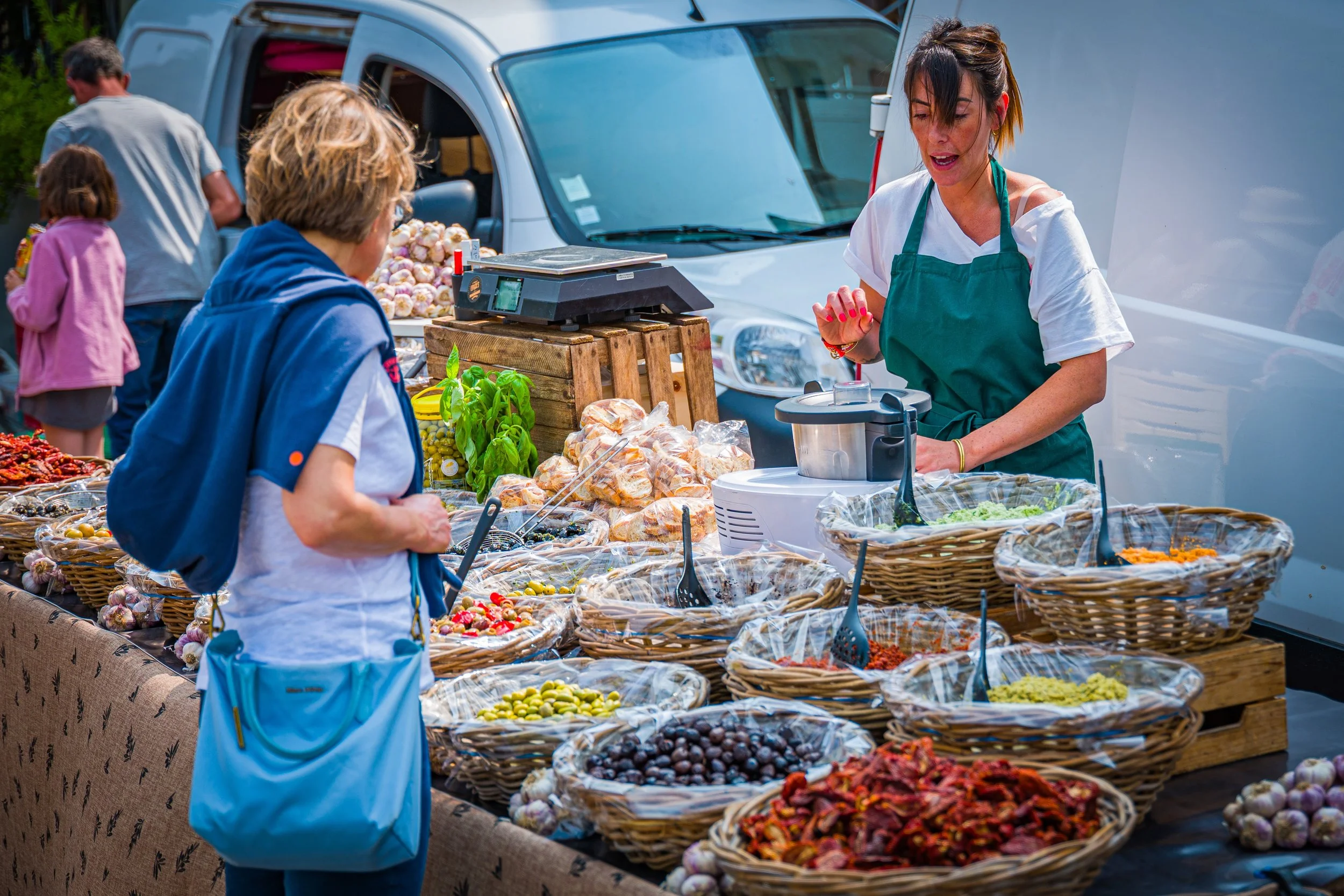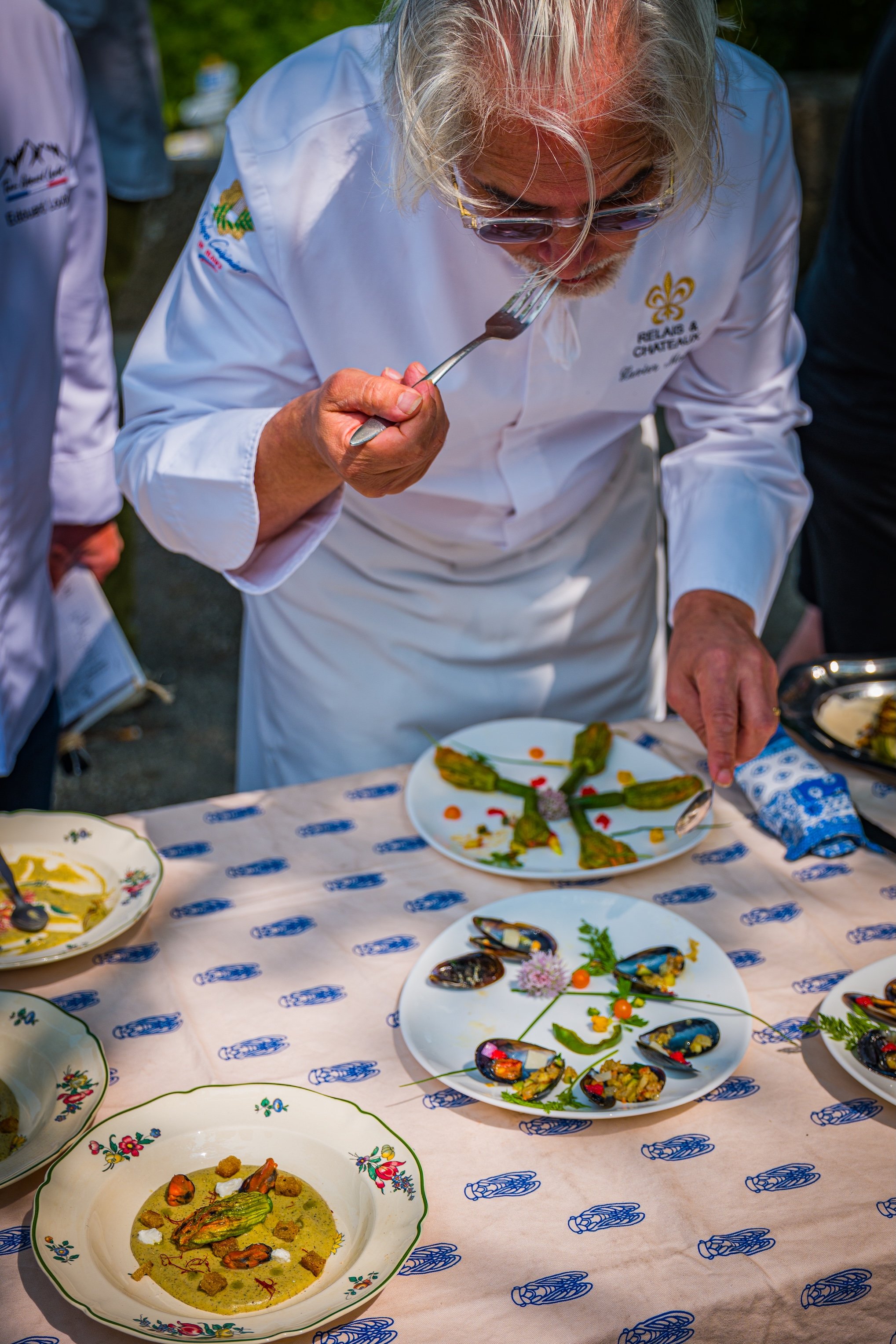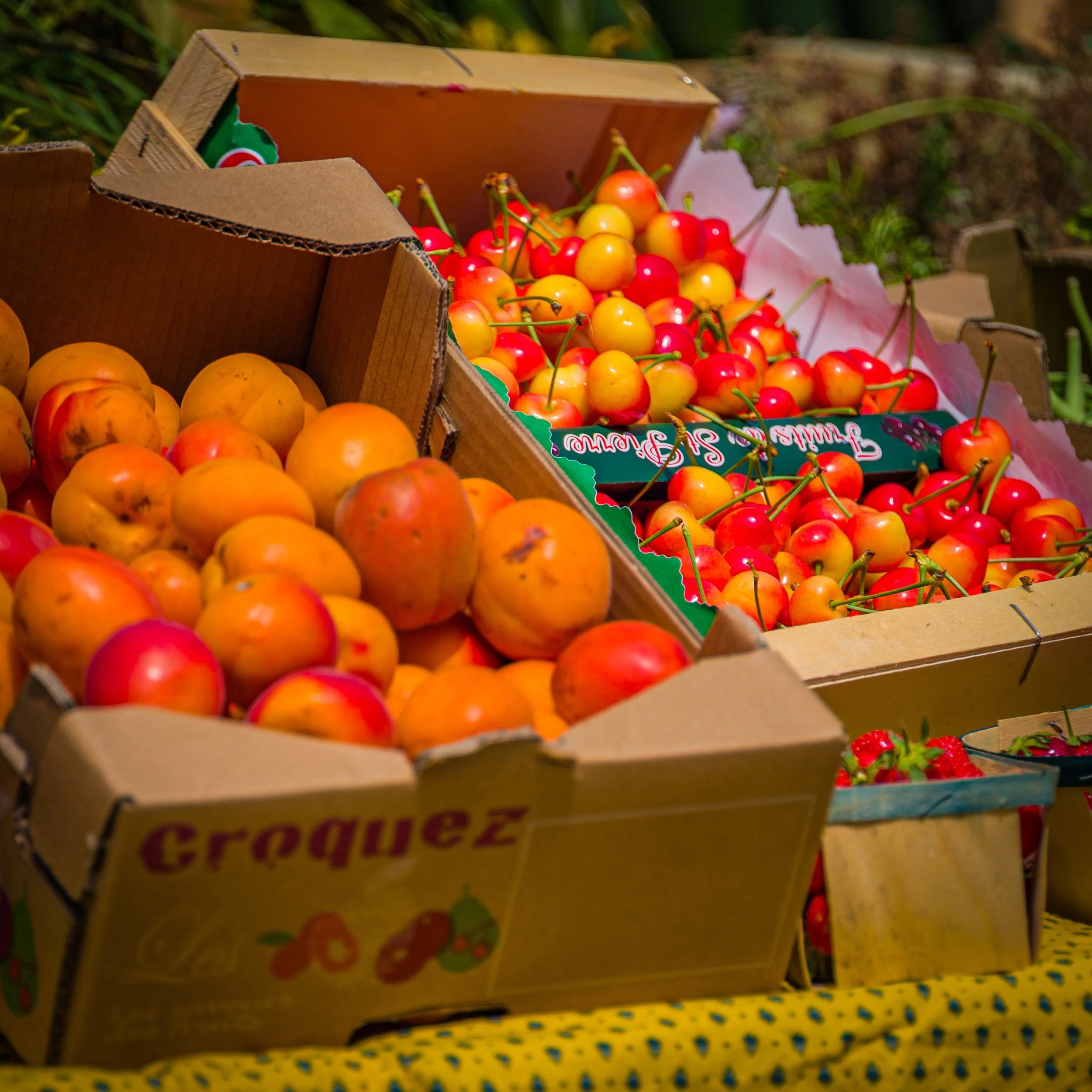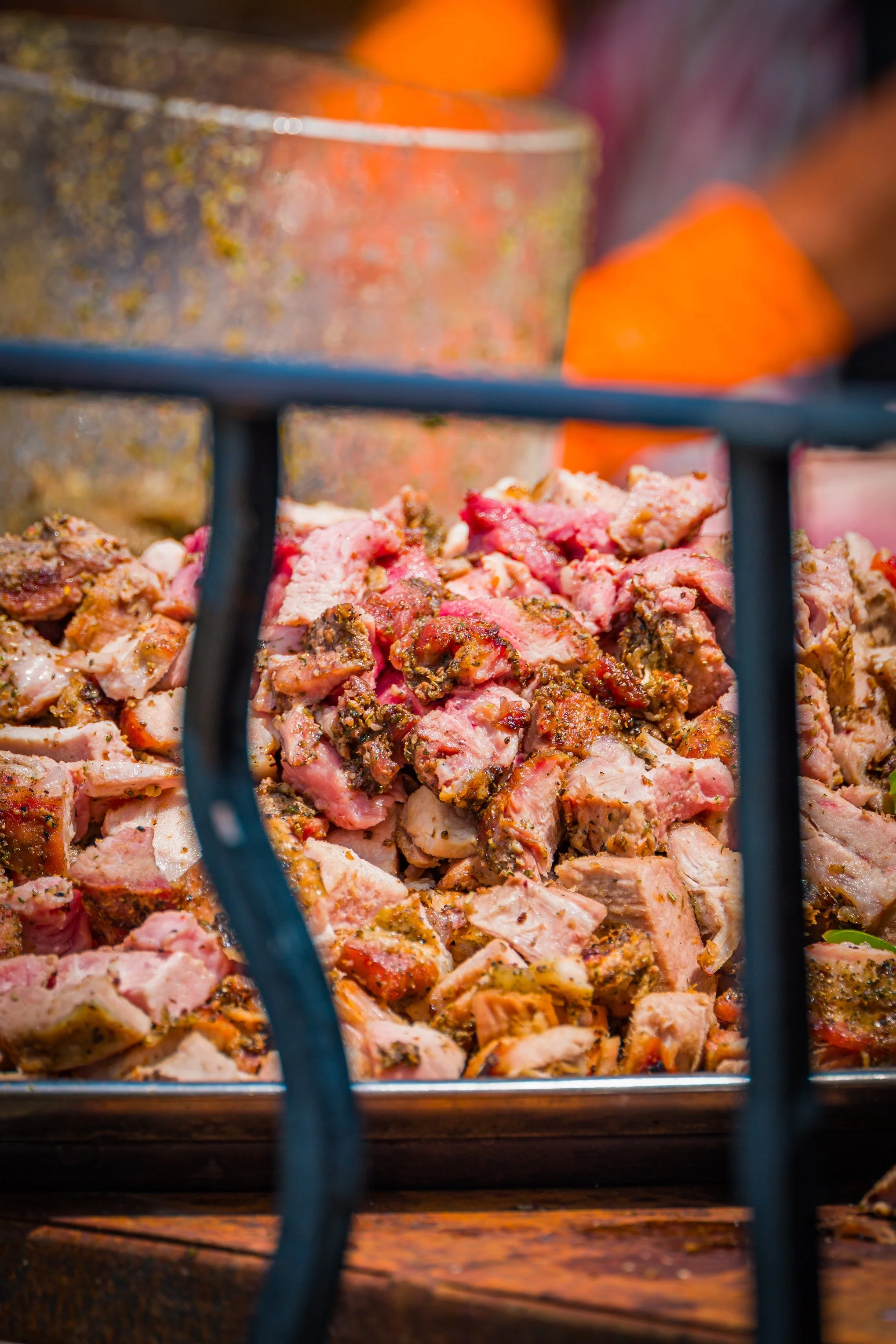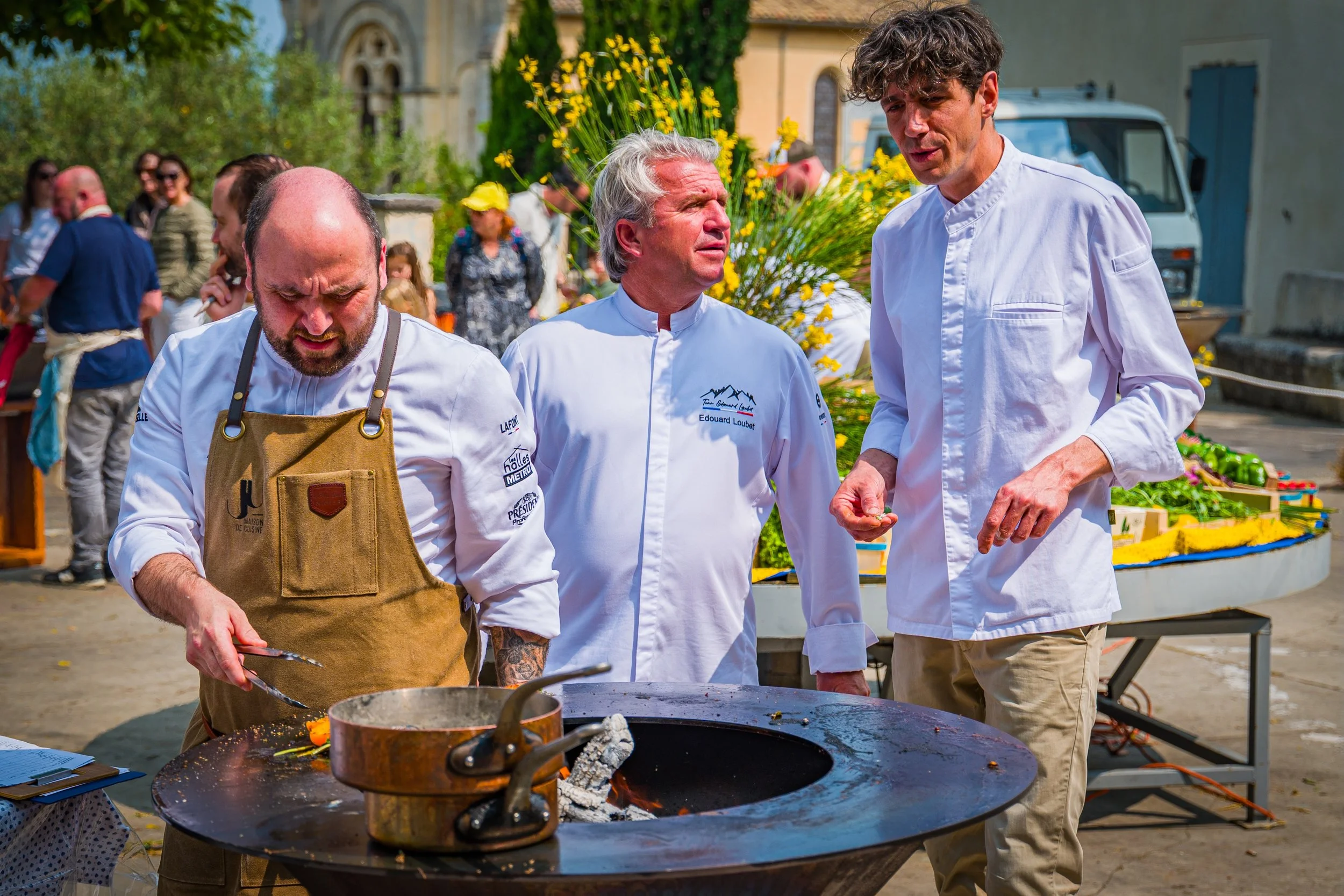A Provençal Village BBQ.
It all started, as these things so often do, with a smell.
A smell so utterly captivating that I abandoned my morning coffee mid-sip, mid-chapter, and mid-existential-crisis, and followed it barefoot from my living room to the street like a cartoon hobo trailing the wafting aroma of a fresh apple pie. I live in a small village in the Luberon Valley, the heart of Provence, where the excitement level typically hovers between "a goat wandered off" and "Jean-Paul found a Roman coin in his tomato patch."
But this was something different. This was something serious. The kind of olfactory eruption that only comes when someone—possibly multiple someones—are attempting to outdo one another with live fire, butter, and a devil-may-care attitude toward cholesterol.
I shuffled down our cobblestone lane in a pair of mismatched espadrilles and followed the fragrant fog to the village square. There appeared a full-blown Provençal BBQ cook-off which had taken shape like a culinary flash mob. There were banners. There were aprons monogrammed with the names of people who take their meat seriously. And there, glittering in the June sunlight like culinary royalty came down from the Alps, stood several Michelin-starred chefs, hands on hips, eyes narrowed in judgment.
In France, a Michelin-starred chef is not just a cook. He is a demi-god, a culinary warlock who has coaxed perfection from an artichoke and once made a food critic weep into his napkin with a well-timed reduction. These men—and they were, of course, men, some with matching grey temples and forearms like baguettes—stood ready to inspect what the villagers dared to place before them. The whole thing had the air of an Olympic final if the Olympics took place in a wine-soaked courtyard and involved suspicious amounts of duck fat.
Every table was a symphony of early summer produce and animal protein, arranged in the kind of decorative overkill usually reserved for weddings and funerals. There were glistening cuts of pork, still marbled with ribbons of creamy fat, sizzling away on beautiful modern grills. Apricots—halved, grilled, and doused in lavender honey—lounged provocatively beside pork chops like sunbathers who'd wandered onto the wrong set.
One man, who bore a strong resemblance to Gérard Depardieu if he’d been stung by a bee, was fanning the flames beneath a sizzling sheet of raw tuna, his forehead glistening with both pride and perspiration. Next to him, a woman named Nadège was preparing mussels the size of toddlers, which she cooked directly on the coals in a contraption that may once have been a church censer. Each one popped open with a satisfying hiss and was promptly drizzled with pastis and topped with chimichurri.
The strawberries, of course, were having a moment. It’s early June in Provence, which means strawberries are at their peak—plump, perfumed, and the colour of a traffic light trying to seduce you. One contestant had impaled a dozen on rosemary skewers, dusted them with sugar and orange zest, and seared them on the edge of his grill like a man with unresolved issues. Another created an entire dessert grill plate: strawberries, cherries, and peaches (presumably smuggled in from the next valley), served atop something called a sable Breton with crème fraîche so thick it came with its own gravitational field.
The judges wandered from table to table with the slow deliberation of men who had no intention of eating dinner that night, making small Gallic noises of approval or dismay that said everything and nothing at once. A sniff here. A raised eyebrow there. The occasional soft murmur of "c’est audacieux..." followed by an unspoken "...and possibly criminal accusation."
The crowd was, as always, a study in contrasts. Some came for the food. Others came for the drama. The crowd, naturally, included an impressive number of self-declared experts. In Provence, every Frenchman—regardless of profession, age, or dental hygiene—is a walking and smoking authority on what constitutes true haute cuisine. These men, many of whom have never been within 100 meters of a Michelin-starred kitchen, can nonetheless identify an improperly rested leg of lamb with the same casual certainty most of us apply to recognizing our own shoes.
In addition to the contestants, local vendors had eagerly set up stalls at the edge of the square. Baskets of glistening cherries and sun-warmed apricots beckoned passersby, while bowls of wrinkled black olives and pyramids of creamy goat cheese stood like edible sculptures. Carafes of golden olive oil shimmered in the sun, flanked by knotted ropes of garlic-laced sausages hanging like festive garlands. And of course, the village wine shop had wheeled out a formidable lineup of rosés, each bottle sweating gently in the heat like a Provençal debutante.
Children ran about unsupervised, their mouths stained with cherry juice and the kind of sugar high that makes dentists nervous.
And while there were no North American-style "pit masters" (thank heavens, or we'd still be hearing about their custom-built smokers and 17-hour briskets), the artistry was no less intense. Every dish had a story, a flourish, a bit of theatre. One contestant had reinvented the humble zucchini flower by stuffing it with a mixture of chèvre, herbs, and enough garlic to ward off a midsummer plague.
By early afternoon, the heat was sweltering, and the judges were visibly wilting behind their sunglasses. The final dishes were brought forward—some on platters of rustic wood, others on slabs of local stone, one on what looked suspiciously like a hubcap. The judging began.
Tension was thick. One contestant nervously adjusted his hat at least 38 times. Another broke into spontaneous song. A third poured a glass of rosé, drank it, and immediately poured another. The chefs conferred in hushed tones, scribbled notes with practiced flair, and finally approached the microphone.
I stayed until the end, sipping Perrier and nibbling on the leftover apricot tarts like a man who had planned none of this and yet knew in his bones that it was precisely what he’d needed. That’s the thing about Provence. One minute you’re debating the merits of herbal tea over espresso, and the next you’re knee-deep in wood-fired miracles and watching a judge from Lyon have a religious experience over a strawberry.
I wandered home hours later, my clothes scented with the smoke of vine cuttings and triumph, my heart full, my stomach fuller. The nose knows as they say. And in Provence, it almost always leads you somewhere worth going.
Today’s local adventure was a treat in so many ways. Today it took me less than a minute on foot to get from my front door to enjoy this celebration. The locals were happy and the visitors were so thankful that their decision to drop by this morning netted them such an experience, both for them and their kids.
All of the images captured at this event were taken with a Leica SL3-S and both the 24-90mm and 90-280mm lenses.
I hope you enjoy this post and as always, I would love to hear from you in the comments below. It makes my day!
Live well.
M.




